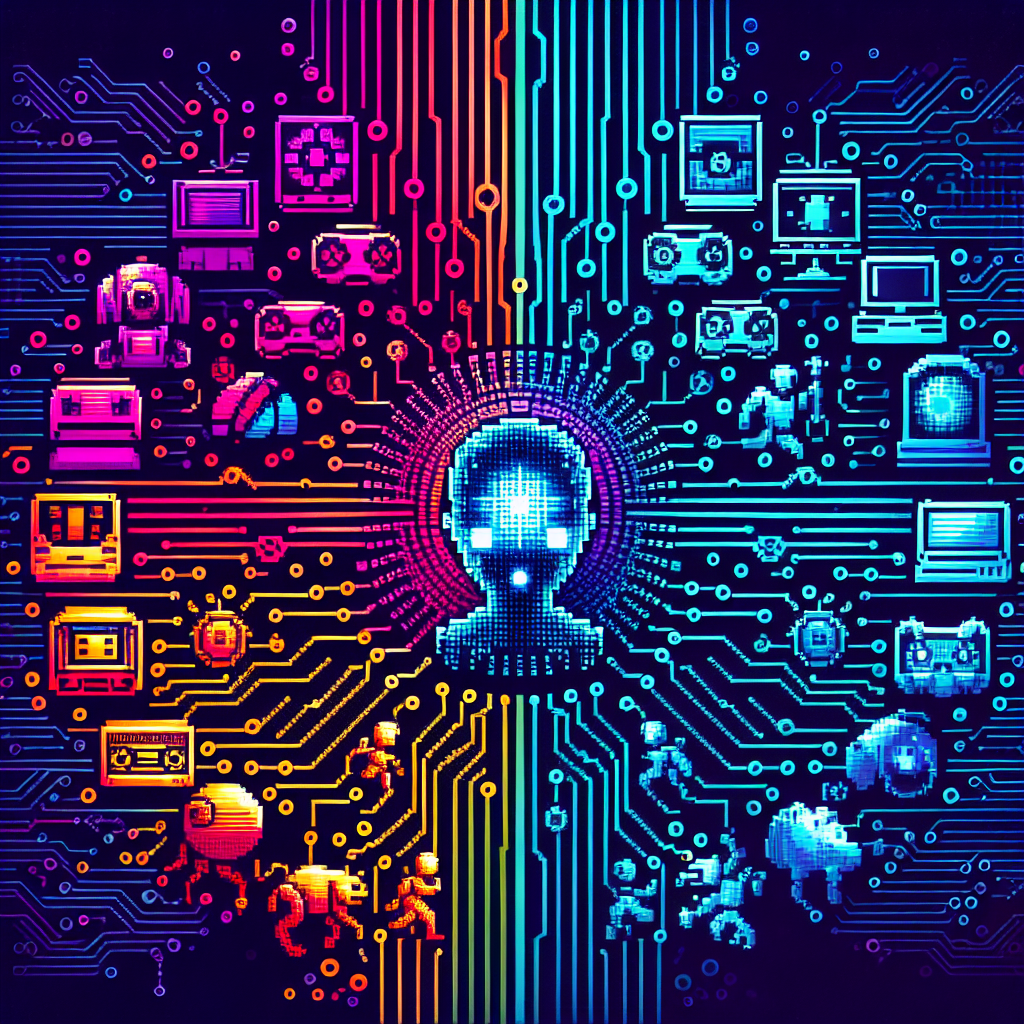The Evolution of AI and Machine Learning in Gaming
Artificial intelligence (AI) and machine learning have revolutionized the gaming industry, transforming the way games are developed, played, and experienced. From intelligent NPCs (Non-Player Characters) to dynamic game environments, AI and machine learning technologies have enhanced the overall gaming experience for players worldwide. In this article, we will explore the evolution of AI and machine learning in gaming, from their early beginnings to their current applications and future potential.
Early Beginnings
The use of AI in gaming dates back to the 1950s, with the development of the first computer chess programs. These early AI systems were designed to play chess against human opponents, using algorithms to calculate the best moves based on the current game state. Over the years, AI in gaming evolved to include more complex algorithms and techniques, such as decision trees, neural networks, and genetic algorithms.
One of the key milestones in the evolution of AI in gaming was the development of the famous AI system Deep Blue, which defeated world chess champion Garry Kasparov in 1997. Deep Blue was able to analyze millions of possible moves per second, using a combination of brute force calculation and sophisticated algorithms to outplay its human opponent. This groundbreaking achievement demonstrated the power and potential of AI in gaming, paving the way for future advancements in the field.
Machine Learning in Gaming
Machine learning, a subset of AI that focuses on building algorithms that can learn from data, has also played a significant role in the evolution of gaming. Machine learning algorithms are used in various aspects of game development, such as character behavior, game balancing, and player experience optimization. By analyzing player data and feedback, machine learning algorithms can adapt and improve game mechanics to provide a more engaging and enjoyable gaming experience.
One of the most notable applications of machine learning in gaming is the development of intelligent NPCs. NPCs are computer-controlled characters that interact with players in the game world, providing challenges, quests, and assistance. Machine learning algorithms can be used to create NPCs that learn from player behavior, adapting their actions and decisions to provide a more realistic and dynamic gaming experience. This not only enhances the gameplay but also adds depth and immersion to the game world.
AI and machine learning algorithms are also used in game balancing, a critical aspect of game development that ensures fair and challenging gameplay for all players. By analyzing player data and feedback, developers can adjust game mechanics, difficulty levels, and rewards to create a balanced and enjoyable gaming experience. Machine learning algorithms can automate this process, continuously optimizing game parameters based on player behavior and feedback.
Future Potential
The future of AI and machine learning in gaming is promising, with new advancements and applications on the horizon. As technology continues to evolve, we can expect to see more sophisticated AI systems that can interact with players in real-time, adapt to their preferences, and provide personalized gaming experiences. Virtual reality (VR) and augmented reality (AR) technologies are also driving the development of AI-driven gaming experiences, allowing players to immerse themselves in virtual worlds that respond to their actions and decisions in real-time.
One of the emerging trends in AI and machine learning in gaming is the use of reinforcement learning, a type of machine learning that focuses on teaching AI systems to maximize rewards by taking actions in a given environment. Reinforcement learning algorithms have been successfully applied to games such as Go, poker, and StarCraft, demonstrating their potential for creating intelligent and adaptive game environments. By training AI systems to learn from their interactions with players, developers can create more engaging and dynamic gaming experiences that adapt to each player’s unique style and preferences.
FAQs
Q: How does AI improve gaming experiences for players?
A: AI enhances gaming experiences by creating intelligent NPCs, optimizing game balancing, and providing personalized gaming experiences based on player behavior and feedback.
Q: What are some of the applications of machine learning in gaming?
A: Machine learning is used in character behavior, game balancing, player experience optimization, and creating dynamic game environments that adapt to player actions.
Q: What is the future of AI and machine learning in gaming?
A: The future of AI and machine learning in gaming is promising, with advancements in reinforcement learning, VR/AR technologies, and personalized gaming experiences driven by intelligent AI systems.
In conclusion, the evolution of AI and machine learning in gaming has transformed the industry, revolutionizing the way games are developed, played, and experienced. From intelligent NPCs to dynamic game environments, AI and machine learning technologies have enhanced the overall gaming experience for players worldwide. With new advancements and applications on the horizon, the future of AI and machine learning in gaming looks promising, with potential for creating more engaging, immersive, and personalized gaming experiences for players of all ages and backgrounds.

